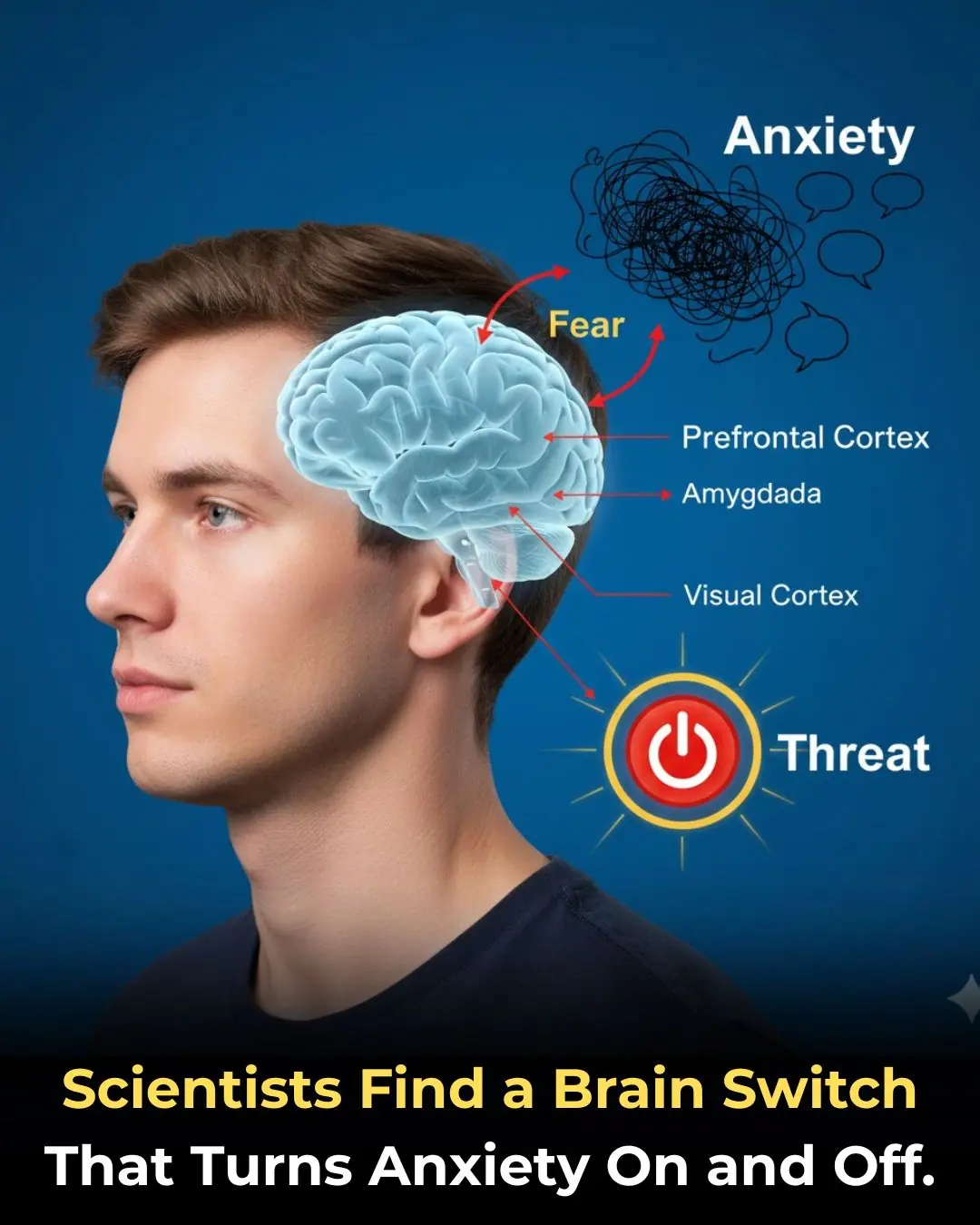
✨ The Unsung Mineral: How Magnesium Deficiency Compromises Nerve Signaling and Undermines Holistic Health
Often overshadowed by more widely discussed vitamins, magnesium is an essential micronutrient involved in over 300 enzymatic reactions critical to human physiology. Recent research has reinforced the profound impact of this mineral, demonstrating that even mildly low magnesium levels (hypomagnesemia) can interfere with vital biological processes, leading to a cascade of debilitating symptoms including poor sleep, irritability, and chronic fatigue. This highlights magnesium's critical, yet often underestimated, importance for overall neurological, hormonal, and muscular health.
The Neurological Anchor: Calming the Nervous System
Magnesium plays a crucial role in maintaining the balance of the central nervous system, effectively acting as the body's natural relaxant. Its primary function in this regard is regulating the activity of the NMDA receptor (a type of glutamate receptor) and the GABA receptor (the main inhibitory neurotransmitter system).
-
GABA Enhancement: Magnesium binds to and stimulates GABA receptors, which dampen nerve activity. By supporting the inhibitory function of GABA, magnesium helps to "switch off" the nervous system, which is essential for initiating sleep, reducing anxiety, and promoting a sense of calm. Deficiency leads to under-stimulated GABA pathways, resulting in nerve hyper-excitability and insomnia.
-
Hormone and Stress Regulation: Furthermore, magnesium is vital for regulating the body’s stress responses. Low levels can interfere with the balance of key hormones, including cortisol (the primary stress hormone). When magnesium is deficient, the body becomes more reactive to stress, maintaining an elevated state of alertness that contributes directly to irritability, poor mood stability, and chronic fatigue.
Physical Manifestations: Muscle and Recovery
Beyond the brain, magnesium’s role in cellular energy production and muscle function is indispensable. It is required for the proper transport of calcium and potassium ions across cell membranes, which is the mechanism that drives muscle contraction and relaxation.
When magnesium is low, this ion balance is compromised, leading to the common physical symptoms associated with deficiency:
-
Muscle Cramps and Spasms: Insufficient magnesium can cause muscles to contract involuntarily or remain in a state of sustained contraction, resulting in painful cramps, twitches, and restless legs.
-
Slow Recovery After Exercise: Magnesium is essential for the production of adenosine triphosphate (ATP), the body’s main energy molecule. It also helps clear lactate buildup in muscles post-exercise. Deficiency impedes efficient energy production and waste removal, slowing down muscle recovery and contributing to general physical discomfort and persistent fatigue following physical activity.
The Solution: Ensuring Adequate Intake
Given the pervasive effects of deficiency, ensuring adequate magnesium intake through diet or supplementation is a proactive strategy for improved health. Rich dietary sources of magnesium include dark leafy greens (like spinach), nuts (almonds, cashews), seeds, legumes, and whole grains.
For individuals who struggle to absorb magnesium or have a demonstrated deficiency, high-quality supplementation may be necessary. Ensuring sufficient magnesium levels offers direct benefits: it helps improve sleep quality by promoting relaxation, enhances mood stability by regulating stress hormones, and optimizes muscle function and recovery by supporting efficient cellular energy.
This research underscores that magnesium is not merely a supplementary mineral but a foundational pillar of human health, central to maintaining the delicate equilibrium between excitation and relaxation in the body.
📚 References
-
Abbasi, B., et al. (2012). The effect of magnesium supplementation on primary insomnia in elderly: A double-blind placebo-controlled clinical trial. Journal of Research in Medical Sciences. (Research demonstrating magnesium's role in improving sleep quality).
-
Boyle, N. B., Lawton, C., & Dye, L. (2017). The Effects of Magnesium Supplementation on Subjective Anxiety and Stress—A Systematic Review. Nutrients. (Systematic review on magnesium's role in stress regulation).
-
National Institutes of Health (NIH) Office of Dietary Supplements. (Authoritative source for information on magnesium's functions, dietary sources, and deficiency symptoms).
News in the same category


🚶 The Power of Post-Meal Movement: Why a Ten-Minute Walk is a Game-Changer for Blood Sugar Control

🎮 The Virtual Battlefield: How the British Army is Leveraging Call of Duty for Next-Generation Tactical Training

🍔 The Hijacked Brain: How Ultra-Processed Foods Mimic Addiction and Disrupt Decision-Making

How Chronic People-Pleasing Could Increase Your Risk of Autoimmune Disease

Autophagy: How Your Body's 'Self-Cleaning' Process Boosts Health and Longevity

Groundbreaking Stem Cell Therapy Reverses Type 1 Diabetes, Restoring Natural Insulin Production

Breakthrough Ready-Made Immune Cell Therapy Shows Promise in Treating Advanced Kidney Cancer

Early Detection of Testicular Cancer: The Key to Saving Lives in Young Men

New Research Shows Coffee Consumption Can Reduce Liver Cancer Risk by 43%

Why Do We Get Shocked by Static Electricity

What Clearing the Table Says About You

What is their purpose in doing so?

🛁 Say Goodbye to the Shower: Japan Unveils the 15-Minute "Human Washing Machine"

Fingerprint Individuality: A Story Written by Biology, Environment, and Chance

Northwestern Study Reveals Hidden Dangers in Youth Skincare Influencer Culture

Scientists Discover a Brain Receptor That Acts as a Natural Shield Against Alzheimer’s

A Fluorescent Breakthrough: New Dye Helps Surgeons Precisely Target Prostate Cancer
News Post

Put aluminum foil under the pillow before going to bed what happens

💉 The Future of Cardiac Screening: New Blood Test Detects Hidden Heart Disease Years Before Symptoms

🧠 The Anxiety Circuit: Discovery of a Neural Pathway That Functions as an On/Off Switch for Fear

🚶 The Power of Post-Meal Movement: Why a Ten-Minute Walk is a Game-Changer for Blood Sugar Control

🎮 The Virtual Battlefield: How the British Army is Leveraging Call of Duty for Next-Generation Tactical Training

🍔 The Hijacked Brain: How Ultra-Processed Foods Mimic Addiction and Disrupt Decision-Making

How Chronic People-Pleasing Could Increase Your Risk of Autoimmune Disease

Autophagy: How Your Body's 'Self-Cleaning' Process Boosts Health and Longevity

Groundbreaking Stem Cell Therapy Reverses Type 1 Diabetes, Restoring Natural Insulin Production

Breakthrough Ready-Made Immune Cell Therapy Shows Promise in Treating Advanced Kidney Cancer

Early Detection of Testicular Cancer: The Key to Saving Lives in Young Men

New Research Shows Coffee Consumption Can Reduce Liver Cancer Risk by 43%

Clothes are easily wrinkled when washed: Put something cheap in the machine when washing, the clothes will come out flat.

Refrigerator leaks water, slows down cooling: Women can learn how to fix it themselves, no need to call a technician

Why Do We Get Shocked by Static Electricity

What Clearing the Table Says About You

The Magic of Lemon Juice and Activated Charcoal: Natural DIY Solutions for Skin and Teeth

Improve Eyesight Naturally With Onion Tea: Benefits, Uses & How to Make It
